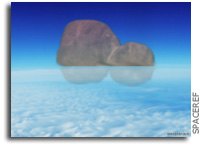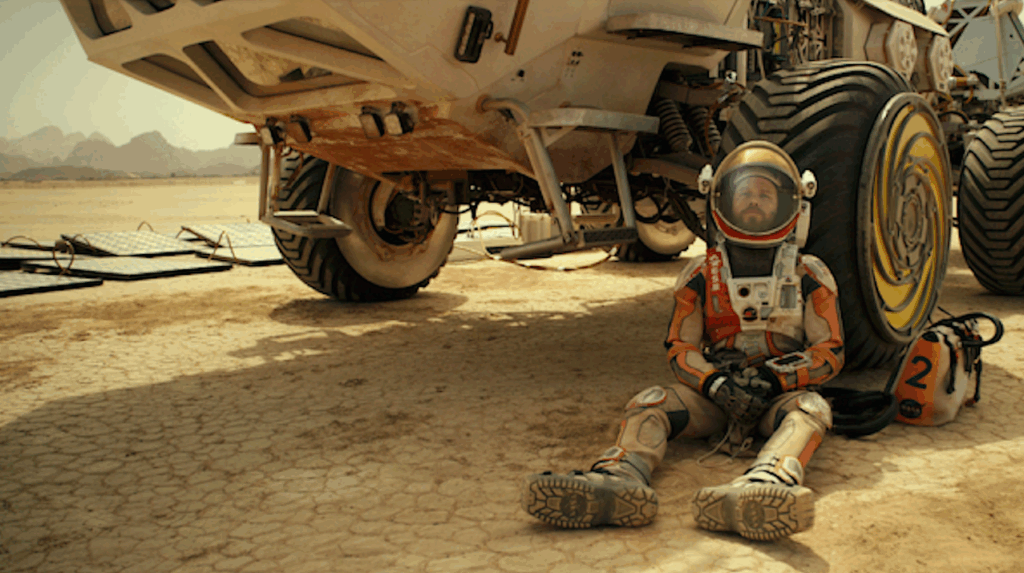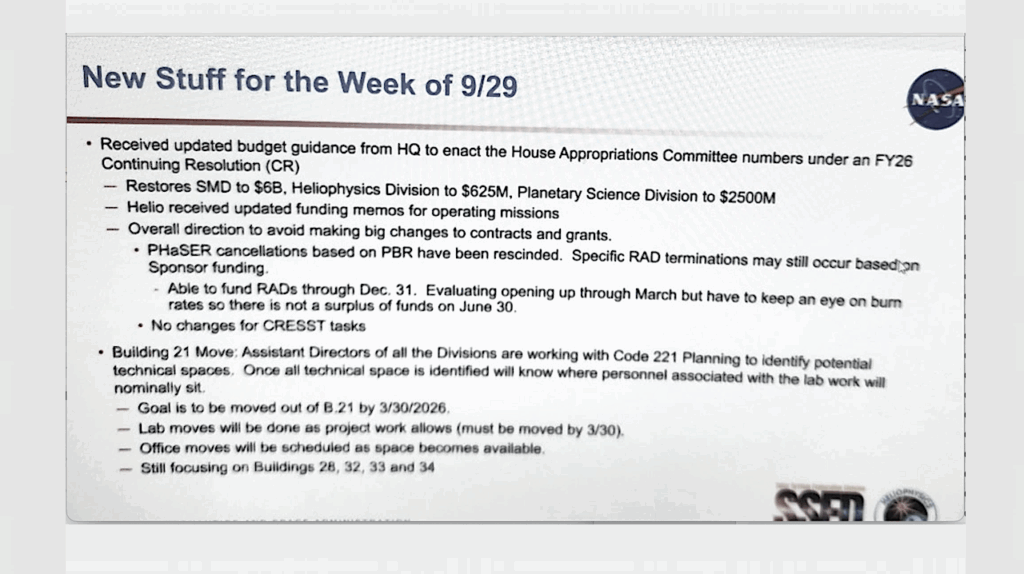Ultima Thule Is Now "Arrokoth"

 Keith’s note: The new name is “Arrokoth” which means ‘sky’ in Powhatan. It is cool that the IAU named 2014 MU69 this way. Oddly the formal announcement was done in a windowless NASA room with no public visibility. They should have done it outdoors under the ‘sky’ at the National Museum of the American Indian 2 blocks away. Just sayin’
Keith’s note: The new name is “Arrokoth” which means ‘sky’ in Powhatan. It is cool that the IAU named 2014 MU69 this way. Oddly the formal announcement was done in a windowless NASA room with no public visibility. They should have done it outdoors under the ‘sky’ at the National Museum of the American Indian 2 blocks away. Just sayin’
 Keith’s update: NASA did talk to the National Museum of the American Indian about hosting this event however the museum does not host events like this so they declined.
Keith’s update: NASA did talk to the National Museum of the American Indian about hosting this event however the museum does not host events like this so they declined.
“From:
Subject: Name of Powhatan heritage and the Algonquian languages Program
Date: 12 November 2019 08:56
To: “[email protected]”
Good morning SMD: Please join us for an official ceremony to formally bestow upon 2014 MU69 a name of Powhatan heritage and the Algonquian languages. NASA Headquarters Webb Auditorium Tuesday, November 12, 2019 9:00-10:00 a.m. EST”.
 Keith’s update:
Keith’s update:
New Horizons Kuiper Belt Flyby Object Officially Named ‘Arrokoth’
“In a fitting tribute to the farthest flyby ever conducted by spacecraft, the Kuiper Belt object 2014 MU69 has been officially named Arrokoth, a Native American term meaning “sky” in the Powhatan/Algonquian language. With consent from Powhatan Tribal elders and representatives, NASA’s New Horizons team – whose spacecraft performed the record-breaking reconnaissance of Arrokoth four billion miles from Earth – proposed the name to the International Astronomical Union and Minor Planet Center, the international authority for naming Kuiper Belt objects. The name was announced at a ceremony today at NASA Headquarters in Washington.”
There will apparently be some sort of announcement about the @NASANewHorizons flyby of Ultima Thule today by @AlanStern at @NASA HQ today. Nothing in terms of time from #NASA yet. pic.twitter.com/qbbCaCaeML
— NASA Watch (@NASAWatch) November 12, 2019








Two kick*** names, hard to choose which one is better.
It is a cool name… assigned to an object that already had a cool name. Why the confusion?
It’s the IAU. They like to have consistent naming conventions to the extent which they can. In the case of classical Kuiper belt objects, they want some association with creation myths. My Algonquian mythology isn’t up to the exact connection between Arrokoth and creation myths, but I assume there is one. There isn’t such a connection for Ultima Thule.
This sort of thing can be convenient for people working in the field. For example, geological features on Saturn’s moon, Enceladus, are named for people and places in One Thousand and One Nights (spelling from Burton’s translation into English) while those on Dione are from the Aeneid. So if you know that bit of trivia and someone mentions Damascus Sulcus, you know what moon he’s talking about. But it can be taken a bit far; in some cases, you need to be both a linguist and an anthropologist to see the connections.
“if you know that bit of trivia”
I am rolling on the floor, imagining scientists, hearing a name, and saying to one another “oh, right! Just like Book 19 of Vergil!”
I have a degree in classics and most of these names require trips to the dictionary!
Virgil isn’t too bad. I’m still trying to figure out where Ithaca shows up in the Aeneid. I suspect it’s a very tangential mention but someone from Cornell wanted to name something after the Ithaca in New York. The real hard ones are things like giants from Inuit mythology (used for one of the three groups of distant, irregular moons of Saturn.) And craters on Europa have names from Welsh mythology, which almost guarantees the name isn’t pronounced anything like the way it’s spelled.
Do you know if anyone from the Powhatan Nation is attending? I assume they received permission to use the name and didn’t just culturally appropriate it.
If borrowing names or words from another language is ‘cultural appropriation’, where do I seek recompense for my offense when Celtic or Polish words or names (or perhaps even words created specifically by fellow Americans) are used by others of non-Celtic or non-Polish or non-American heritage? Do we all owe persons of Greek heritage some sort of apology for appropriating ‘their’ names for the planets?
And to what official bodies of elders or experts should those appropriators have submitted their request for permission in the first place?
There’s respecting a culture or set of beliefs, and then there is just plain silliness. Languages are dynamic entities and some absorb large numbers of words from other languages via the interactions of the peoples who use them. Humans have done this since the beginning of language.
We must take historical context into account. The issue with cultural appropriation isn’t the borrowing of culture per se, it’s whether that “borrowing” reinforces power imbalances between dominant and colonized/conquered/otherwise subordinated cultures. The classic example of cultural appropriation being “Indian” Halloween costumes – which are almost always caricatures that bring to mind and reinforce (harmful) stereotypes of the Indigeneous Americans.
So, does renaming this object reinforce the historical power gap between European-Americans and the Powhatan? I don’t believe it does, since it was mentioned that the renaming was with their consent and the use of the word promotes visibility and therefore understanding of their culture.
Yes, but the idea of “cultural appropriation” can be taken too far. I’ve seen press stories about objection to people of European descent wearing their hair in dreadlocks. That strikes me as going a bit too far. In this case, the motive was to honor a near vanished culture. I don’t see how that could be a problem. But asking the few remaining people from that culture if it was ok strikes me as a sensible and polite thing to do.
Yes, it’s the least we could do, showing them some respect, given past abuses. If nothing else it’s the polite thing to do.
I’m with you, Doc; as an example, the abuse heaped upon Hawaiian names is shameful; whites flutter bout with ‘Aloha’ as every second word just makes me shudder.
This notion won’t be popular, I know.
I’m not sure if I’d call it “cultural appropriation”, but it couldn’t hurt to ask. And I think that’s also IAU policy. They try to make sure there isn’t anything offensive about a name before the approve it. For example, they would probably never accept the Tetragrammaton as a name for an astronomical object. There are certain religious sects which don’t even approve of pronouncing that. In this case, I can’t see why “sky” would be a problem, but the IAU naming convention does imply some mythological connection, so I assume there is one I don’t know about. So it couldn’t hurt to ask.
As for who they would to ask, I believe the Pamunkey Indian Reservation’s tribal government could point them in the right direction. I suspect involving the entire Algonquin Nation’s government would be going too far.
Regarding whom to consult, I was speaking of those in the past who have appropriated Celtic, Polish, or American words or names per my opening parallel scenario. All the articles describe who was consulted in this current case.
Well, we do see current debates about these sorts of things. Poland is officially objecting to a Netflix history, because it implies Nazi death camps were polish, because they were in Nazi occupied Poland. The poles don’t see it that way. So I think it is reasonable to ask an affected group how they feel about something before using a word in their language to name something. I’m not saying that one language can’t borrow from another. That would be absurd. I’m simply saying that asking in advance is a sane and polite practice.
Cultural appropriation? What a ridiculous concept! It’s like saying you can’t use a word from some other language because it’s not your native language. It’s just ridiculous. People are looking for any excuse to be offended.
That’s like saying you can’t use fry sauce because it was invented in Utah so unless you live in Utah you can’t have fry sauce because… It’s stupid!
They were in attendance and participated including a ceremony. Alas NASA has no video of anything to show.
Thanks! Glad to know they approved of it.
Well, this time of year, doing it outside under the sky risks getting snowed and/or rained on, or worse.
I’m completely beguiled. The very process is entirely soaring.
The fine native name gains both velocity, and publicity, just as a speeding research vessel gains velocity, speeding close to a celestial object.
(That seems entirely foggy, I know…)
It’s thrilling.